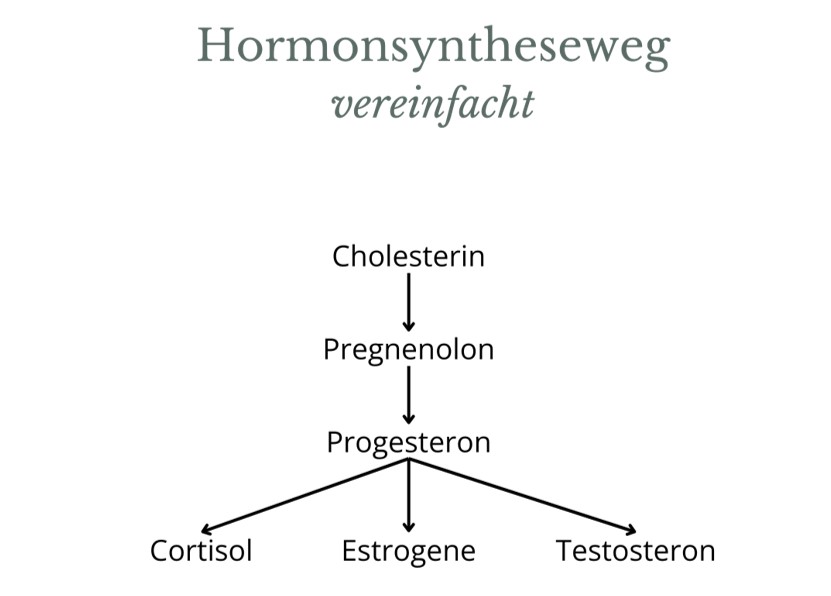
This article explains the impact of stress on our menstrual cycles and why the adrenal glands are an integral part of female health care. We look at the phenomenon of progesterone stealing and how it influences the menstrual cycle.
Examples of what we consider typical stressors
- Lack of sleep
- Not enough nutrients / food
- Overeating
- Lack of movement
- Training too much or at a suboptimal time of day
- Lack of relaxation
- Illness
- Extreme heat or cold
- Emotional / psychological stress
The hormones involved
- Estrogenes: Estrogens are dominant in the first phase of the cycle when a follicle is growing. They are produced primarily in the ovaries.
- Progesterone: In the second phase, progesterone is dominant and ensures blood flow to the uterus. It’s primarily produced by the corpus luteum – the part of the follicle that remains in the ovaries after ovulation.
- Cortisol: A hormone produced by the adrenal glands, often called the “stress hormone” because it helps your body respond to stress.
- Pregnenolone: This is a precursor hormone, meaning it’s a building block for other hormones. Think of it as the raw material needed to make several important hormones, including progesterone and cortisol.
Progesterone stealing
To understand progesterone stealing, we need to first look at hormone synthesis. As you can see in the picture below, pregnenolone is a precursor hormone for many steroid hormones like progesterone, which is then further synthesized into estrogens, testosterone or cortisol.

Picture 1: Hormone synthesis (simplified)
Acute stress primarily moves through the catecholamine axis (adrenaline / noradrenaline) but once it becomes chronic or too much, cortisol rises.
Our body is very smart and prioritizes survival over thriving.
Cortisol is the hormone to ensure survival. Many people talk about cortisol as if it was something negative, but it actually does many important things like increase heart and breathing rates, it decreases inflammation responses in the body and increases concentration. While it is important and helps us survive, it has a negative impact on our menstrual cycle.
Our menstrual cycle is part of thriving. If we are in survival mode (=stress mode), cortisol is prioritized over hormones like progesterone. Because they have the same precursor (pregnenolone) that means in the end, there’s not enough progesterone produced for a healthy cycle. We see this mostly as relative estrogen dominance caused by a lack of progesterone. This means we don’t have enough progesterone which leads to a disbalance between estrogen and progesterone. The symptoms can include PMS, tender breast, migraines, decreased sex drive, irregular periods and fertility issues.
So treating our stress response and the adrenal glands that produce cortisol is a very important part of treating menstrual cycle disorders as well as fertility issues.
How to address stress and the adrenal glands
There are many areas in which we can address the stress response and thus the adrenals. Here are some examples:
- Lifestyle: Meditation and mindfulness can impact stress levels. Sleeping regularly and enough stabilizes the circadian rhythm and thus the stress response. Exercise and massage can also support stress management.
- Nutrition: Eating regularly and warm including different vegetables and fruit, as colorful as possible, healthy fats and including blood type specific proteins help regulate the stress response. Supplementing B-vitamins as well as magnesium support a stable metabolism and nervous system and with that stress resilience.
- Herbal support: Plants that support the nervous system like lemon balm or common hop help stress management. Depending on the constitution, adaptogens can be indicated.
If you are ready to get your personalized treatment plan to address stress and with that menstrual cycle issues, book your free consultation with us.



